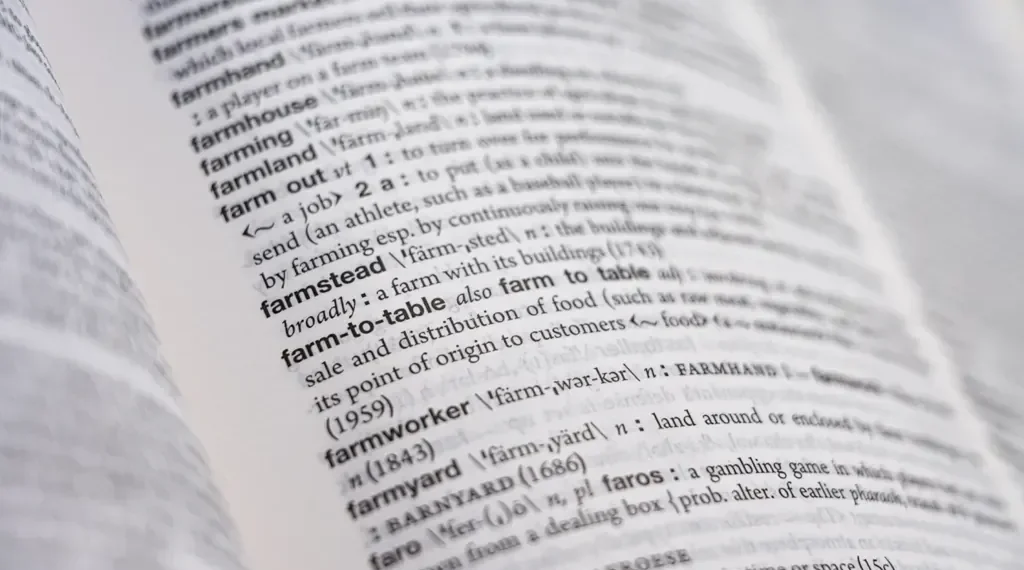Merriam-Webster adds 5,000 new words to its Collegiate Dictionary in first full overhaul in 22 years, reflecting cultural and digital trends.
Published: September 27, 2025, 10:00 EDT
NEW YORK — Merriam-Webster has unveiled a major update to its signature reference book, announcing the release of the 12th edition of the Collegiate Dictionary. The revised edition, set for release on November 18, adds more than 5,000 new words and usage examples, reflecting linguistic shifts influenced by technology, culture, and everyday speech.
The update is the first complete overhaul of the Collegiate in 22 years, underscoring the evolving role of print dictionaries in an increasingly digital world.
A Major Update for a Classic Dictionary
The new edition incorporates contemporary terms such as “petrichor,” the pleasant scent after rain, and “teraflop,” a measure of computing speed. Also included are “dumbphone,” describing basic mobile devices that predate smartphones, and “ghost kitchen,” a term popularized during the COVID-19 pandemic for commercial cooking spaces used primarily for delivery services.
Other cultural and lifestyle expressions added include “cold brew,” “farm-to-table,” “dad bod,” “hard pass,” “adulting,” and “cancel culture.” Internet-driven slang such as “rizz,” “doomscroll,” “side-eye,” and workplace terms like “WFH” also made the cut.
In addition to new entries, more than 20,000 usage examples have been added to help illustrate how words function in context.
Making Room for New Language
To accommodate the growing vocabulary, Merriam-Webster removed sections from the previous edition that contained sparse biographical and geographical entries. According to company president Greg Barlow, these features no longer reflect how people use dictionaries.
“People don’t turn to a dictionary to find where Kalamazoo is or who Rimsky-Korsakov was. They go to the internet for that,” Barlow told the Associated Press. He added that the new design aims to be “more rewarding to browse, more fun to look through, and practical for research.”
The update also eliminated certain obscure or outdated words, such as “enwheel,” meaning to encircle.
Print Dictionaries in a Digital Age
The latest Collegiate weighs nearly five pounds and arrives at a time when print reference sales have declined. Data from Circana BookScan shows adult reference books, including dictionaries and atlases, have posted annual sales declines since 2022, with a 9% drop in the 12 months ending in September.
Merriam-Webster sells about 1.5 million dictionaries annually, but print editions represent only a small portion of its revenue. “While the print dictionary is not at all important to the growth and profitability of this wonderful language company, it’s still our heart,” Barlow said.
Despite the overall decline, some retailers have reported an uptick in dictionary sales. Barnes & Noble noted a rise in 2025 compared to the previous year, a trend also seen in sales of other reference books. “There’s a certain nostalgia in being able to pull a dictionary off the shelf,” said Kat Sarfas, the chain’s nonfiction marketing manager.
The Enduring Role of Reference Books
While print dictionaries may no longer be the primary resource for most readers, they continue to hold symbolic and practical value. Students in schools with cellphone restrictions, households that value reference collections, and collectors of physical books all contribute to sustained demand.
“Having a print dictionary has long indicated the legitimacy of a language,” said Lindsay Rose Russell, executive director of the Dictionary Society of North America and professor at the University of Illinois. She noted that many Indigenous languages have historically lacked such documentation due to suppression.
For others, the dictionary serves as more than a reference tool. “Some people use the dictionary almost as a meditative resource, opening it to see what they find and letting their minds wander,” said lexicographer Grant Barrett, co-host of the public radio program A Way with Words.
Merriam-Webster’s Digital Strength
While print editions retain a loyal audience, Merriam-Webster’s online presence has become a dominant force. Its website attracts roughly one billion visits per year, supported by mobile apps, online thesauruses, and word games. Over the past decade, the company’s overall revenue has grown nearly 500%, largely through digital offerings.
The new Collegiate includes curated features such as decade-specific word lists and expanded word histories. For example, “calculate” derives from the Latin for “pebble,” a reference to how ancient Romans used stones for arithmetic.
The book also preserves design features beloved by traditional users, such as thumb notches for easy navigation. With the U.S. printer for thumb notches no longer in business, production was outsourced to India to retain the detail.
Dictionaries as Cultural Anchors
Experts say dictionaries continue to serve as cultural anchors that help shape collective understanding of language. They not only reflect new words but also legitimize them by including them in a widely respected reference.
For the music world, print dictionaries even played a role in shaping band names. William King, trumpet player for the Commodores, once shared that the group found its name by running a finger down a dictionary page. “We almost became ‘The Commodes,’” he told People magazine in 1978.
For Merriam-Webster, the new edition balances tradition with modernity, offering a resource that appeals both to digital natives and those who cherish the tactile experience of a physical book.
This article was rewritten by JournosNews.com based on verified reporting from trusted sources. The content has been independently reviewed, fact-checked, and edited for accuracy, neutrality, tone, and global readability in accordance with Google News and AdSense standards.
All opinions, quotes, or statements from contributors, experts, or sourced organizations do not necessarily reflect the views of JournosNews.com. JournosNews.com maintains full editorial independence from any external funders, sponsors, or organizations.
Stay informed with JournosNews.com — your trusted source for verified global reporting and in-depth analysis. Follow us on Google News, BlueSky, and X for real-time updates.














